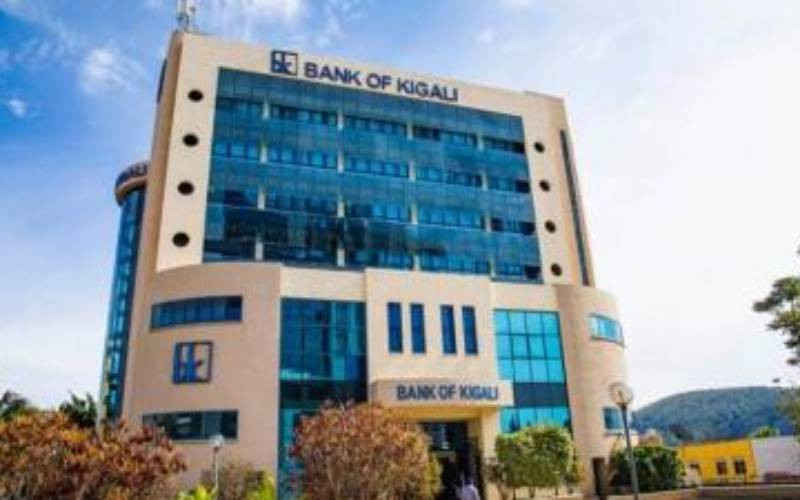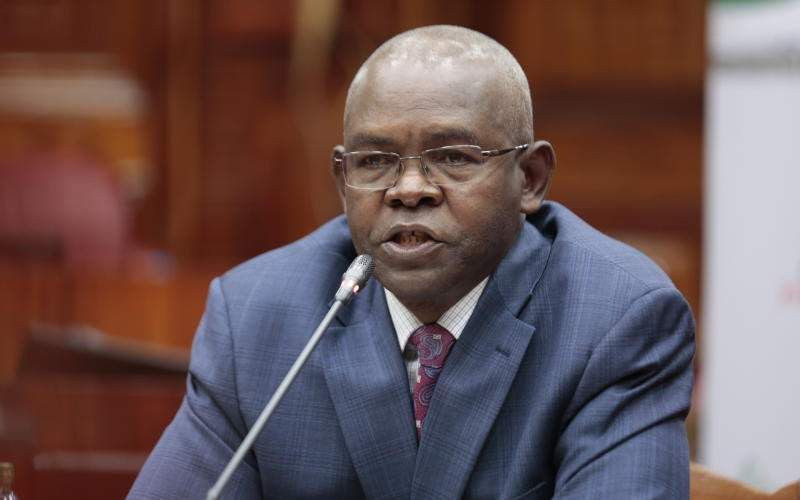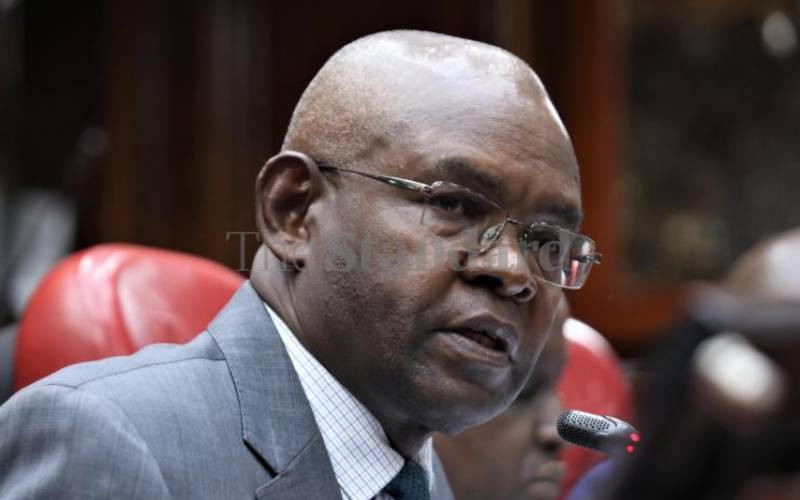
Central Bank of Kenya (CBK), National Treasury and all 43 banks did not want a cap on interest rate.
Despite acknowledging that the cost of credit then was high and that something needed to be done, they have cautiously supported the law since it took effect.
But for borrowers, it was a miracle that these regulations that had in the past been strongly opposed by those in power had finally come into effect.
On August 24, 2016, President Kenyatta ended the anxiety among borrowers by signing the 2015 Banking (Amendment) Bill into law.
“We will implement the new law, noting the difficulties that it would present,” the President’s speech read in part.
On the streets, Kenyans felt liberated. On the Nairobi Securities Exchange (NSE) investors were gnashing their teeth as all the 11 counters dropped in prices and bled a record Sh45 billion in one trading session.
And in the banking halls, it has been mixed reactions even as CBK’s Monetary Policy Committee held the position that the cap had complicated its work. Currently, credit to private sector is at 10-year low.
But hardly seven months after the signing of the law that saw the price of credit capped at four per cent above Central Bank Rate (CBR), the President noted the difficulties as captured in his recent State of the Nation address in Parliament.
“It is unfortunate that the unintended consequence of the interest rates was a slow-down in lending by our commercial banks. This is an issue that concerns us...I will actively seek to resolve... so that credit can start to flow again to the real drivers of our economy,” reckoned President Uhuru.
The country’s leading policymakers, the very team that had warned of negative impact of the rate cap but still went to State House to witness the President pass it into law, are back into the picture. They want to study the impact and in the process fix the abnormality, which they link to slowdown in the economy.
In other words, it is safe to say that the new regulations may not survive after the Budget set for next week, right?
Unlike when the new law came into being, these critics will be deciding the fate of the cap – whether it remains or not.
Ironically, the man who drafted the law and the public who celebrated it will not be on the policy-making table that will make this crucial policy decision.
Going by their past sentiments, the verdict is leaning away from the wanjiku and it could mean the cheaper credit that Kenyans had enjoyed is on its deathbed.
Stay informed. Subscribe to our newsletter
According to Treasury Principal Secretary Kamau Thugge, his office and that of CBK Governor are working together in order to take appropriate action.
“That is an ongoing process. In fact, we also want to engage multilateral institutions like World Bank who will also be looking at the same matter. As soon as we are finished, we will certainly let you know and action will surely be taken,” said Thugge.
Thugge says that even though Treasury bills and commercial bank interest rates have stablised, the issue of slow uptake of credit to private sector, now at 10-year low, is causing concern.
But Jude Njomo, Kiambu legislator who came up with the Bill, now claims that banks are only making the situation look bad so that the law can be changed.
“The impact is not natural. It is orchestrated. They told us they were going to withhold credit from customers and they are doing exactly that. We even know the kind of budget they have put aside for them to script a scenario that looks dire,” says the MP.
For National Treasury, it is still complicated to draw a correlation between the rate cap and the slow growth in credit. But the President’s statement suggested with finality that a negative correlation had been observed.
Last week, Treasury officials told the Press that it wants to work with CBK to find out the impact that the new regime has had on credit to private sector, especially the Small and Medium Enterprises (SMEs).
Thugge says that credit growth to private sector has been dropping since November 2015 when it was growing at 20 per cent. He adds that there has been a decline in growth almost every month and by the time the cap came in, month-on-month growth was averaging below five per cent.
“Even before the law came in, there was this decline in growth but at the same time the economy was growing. It is a paradox and we are trying to really find out this behavior,” Thugge said, sounding like an arbitrator in the case which many believe will go against Wajiku.
Prior to the Njomo-sponsored Bill being signed into law, CBK, Treasury, KBA, and International Monetary Fund all openly spoke of the negative impacts of capping cost of credit. This left the President and the public on the other side
“Coming up with an artificial interest rate and saying: ‘this is what the rate should be’ is very challenging because, first, how do you know the prevailing price in the economy?” Treasury Cabinet Secretary Henry Rotich asked when the law was still in Parliament.
CBK Governor Patrick Njoroge is on record also saying that capping the rates would hurt access to credit. Even after implementing the amendment, he said that “lowering of rates remains unfinished business.”
“Capping interest rates will be harmful... the proposal will defeat its purpose because the people who will suffer most are the poor. It will also encourage the emergence of informal lending,” Dr Njoroge said.
In its reaction, Kenya Bankers Association (KBA), an umbrella body for banks warned that it would deny them a chance to price risk forcing them to deny some customers loans.
Backed with initial findings research and sensing that policymakers are seeing their point of view, they are now bullish and are aggressively pushing for the law to be removed completely.
“The solution is not to tweak the law, but to remove it and consider some proposals to make credit accessible. We know these problems and we are trying to address them,” said KBA Chief Executive Habil Olaka at a press briefing in Nairobi last week.
The bankers know that for them to build a strong case against the law, they have to back it with some research. And this is the same situation with the other policymakers so when a decision is finally reached, they can base it on evidence.
In their study findings released last week, KBA said that there is evidence of credit reallocation emerging after the cap and it is to the disadvantage of households and sector amenable to SMEs.
On overall financial performance, Kenya Commercial Bank, the largest lender in the region, recorded the slowest growth in net profit in seven years even as it forecasted a two per cent dip in its gross profit this year.
For Equity Group, its profits dropped by four per cent, the first time it failed to record a growth in profit since it went public.
Its CEO James Mwangi said that the cap had made the bank to tamper with strategic plan and move to scenario planning. He wants to shift from risking his deposits with risky lenders to holding the excess liquidity in government securities.
“We don’t want to focus on volume. We will focus on quality---You will see banks getting more skewed to large enterprises because they are secured and with low risk as opposed to micro-enterprises,” explained Mwangi during the release of 2016 results.
According to Njomo, the Government is creating a ready market for banks with excess liquidity, making it easy to starve private sector.
He wants the proposal, before Parliament, to restrict Government to keep its money in only banks it has at least 20 per cent stake passed into law so that SMEs can get a place to borrow from.
However, Treasury says it has not in any way interfered with the market to make banks fall in love with government paper at the expense of private sector.
“We have been quite careful. In fact, we have rejected some bonds such as the Sh30 billion because the rates were very high. The yield we have is varied --- Treasury is not part of the problem,” explained PS Thugge last week.
Should the Government find it necessary to reverse the law, the only route would be to take it back to Parliament. As the clock ticks away to the end of the current Parliament, the possibility of it happening soon may be remote.
“It is only the National Assembly that can do that and I am yet to meet even a single member who is ready to consider removing the cap,” says Njomo who is still confident that the interest cap law will endure the latest storm.
 The Standard Group Plc is a
multi-media organization with investments in media platforms spanning newspaper
print operations, television, radio broadcasting, digital and online services. The
Standard Group is recognized as a leading multi-media house in Kenya with a key
influence in matters of national and international interest.
The Standard Group Plc is a
multi-media organization with investments in media platforms spanning newspaper
print operations, television, radio broadcasting, digital and online services. The
Standard Group is recognized as a leading multi-media house in Kenya with a key
influence in matters of national and international interest.
 The Standard Group Plc is a
multi-media organization with investments in media platforms spanning newspaper
print operations, television, radio broadcasting, digital and online services. The
Standard Group is recognized as a leading multi-media house in Kenya with a key
influence in matters of national and international interest.
The Standard Group Plc is a
multi-media organization with investments in media platforms spanning newspaper
print operations, television, radio broadcasting, digital and online services. The
Standard Group is recognized as a leading multi-media house in Kenya with a key
influence in matters of national and international interest.










